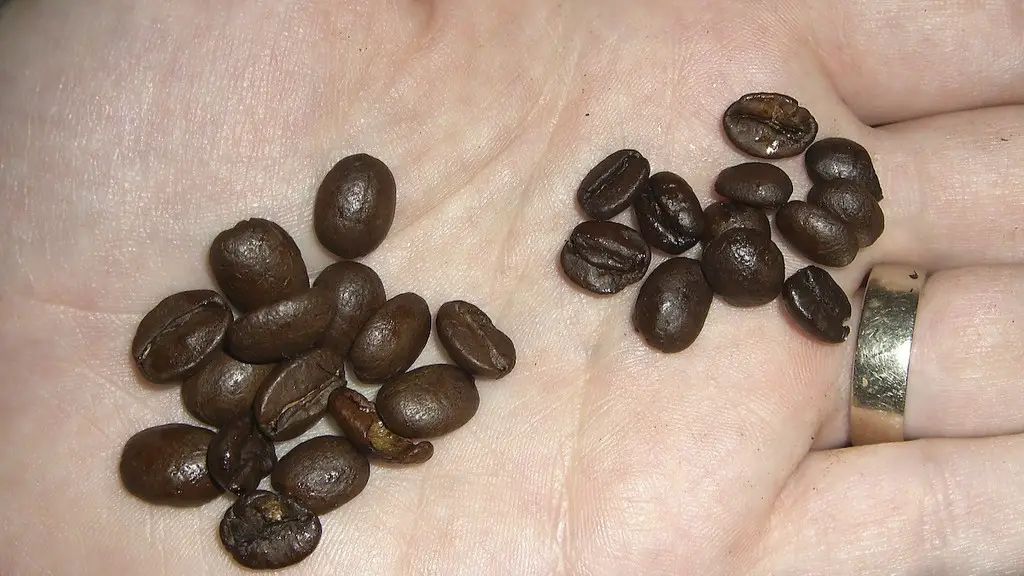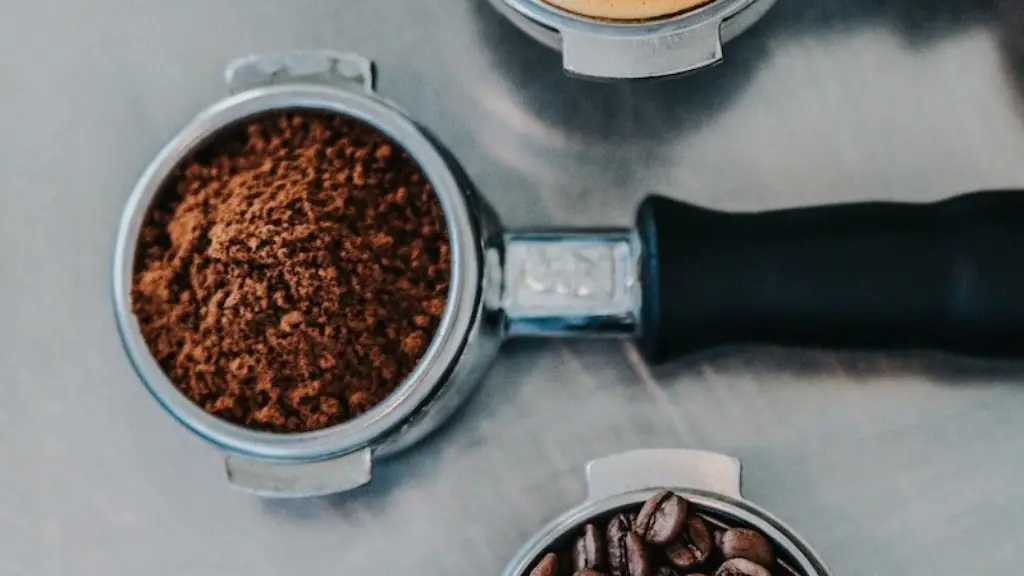Coffee is one of the most popular beverages in the world. It has been used as a source of energy and alertness for centuries. However, there is a common belief that drinking coffee can lead to weight gain.
This belief has caused concern among many coffee drinkers. It has also led to the question of whether or not drinking coffee will result in weight gain. The answer depends on several factors, such as how much coffee is consumed and what type of coffee is consumed.
In general, drinking coffee alone will not cause you to gain weight. In fact, some studies have shown that moderate amounts of caffeine can help increase metabolism and burn more calories.
However, there are certain types of coffees that can be high in calories if they are made with added ingredients such as syrup, cream, or sugar. When these types of coffees are consumed in large quantities or on a regular basis, it can lead to an increase in overall calorie intake and potentially cause weight gain. People should make sure to read labels carefully so they know what ingredients are being used in their favorite drinks.
Types of Coffee Drinks
Coffee is one of the most popular drinks in the world. It is a great way to start your day, or to keep you energized throughout the day. There are many different types of coffee drinks, each with its own unique flavor and brewing methods. Some of the most popular coffee drinks are espresso, cappuccino, latte, macchiato, cold brew, café au lait and mocha.
Espresso is a concentrated form of coffee made from finely ground beans that are brewed under pressure. It has a strong flavor and is served in small shots. Cappuccino is an espresso-based beverage that includes steamed milk and foam on top. Latte is similar to cappuccino but with more steamed milk and less foam. Macchiato is an espresso drink with a few drops of milk added for flavor.
Cold brew coffee is made by soaking coffee grounds in cold or room temperature water for 12-24 hours then straining out the grounds. It has a smoother taste than hot-brewed coffee. Café au lait combines equal parts brewed coffee and warmed milk for a creamy texture and milder flavor. Mocha combines espresso with chocolate syrup or powder for a sweet treat.
So whether you are looking for something strong or something sweet, there is sure to be a type of coffee drink to suit your needs! While it’s true that drinking too much caffeine can lead to weight gain, it’s not necessarily true that drinking coffee will make you gain weight. To be safe, try to consume no more than two cups of coffee per day.
Potential Risks of Drinking Coffee
Coffee is a popular beverage consumed by many around the world, but it can come with some risks. Studies have shown that drinking too much coffee may cause dehydration, headaches, and increased anxiety. Additionally, it can interfere with sleep patterns and increase the risk of heartburn. Although coffee does not necessarily make you gain weight, it can contribute to weight gain if consumed in high quantities or with added sugar or cream. Excess caffeine also increases blood pressure and can cause restlessness and irritability. For these reasons, it is important to monitor your intake and consider alternative drinks if you feel that coffee is having a negative impact on your health.
When consumed in moderation, however, coffee can bring several health benefits such as improved alertness and focus as well as a boost in energy levels. It may even help protect against certain diseases such as Alzheimer’s and Parkinson’s disease. In addition, studies have shown that it may reduce the risk of developing type 2 diabetes or liver cancer. Therefore, while there are potential risks associated with drinking too much coffee, moderate consumption can be beneficial for overall health.
Caffeine Content in Coffee Drinks
Coffee is a popular beverage that contains caffeine, a stimulant drug. Caffeine is known to increase alertness and energy, but it can also have some negative side effects. As such, it’s important to be aware of the amount of caffeine in your coffee drinks. The amount of caffeine can vary from drink to drink and even from brand to brand. For instance, an average cup of brewed coffee contains about 95 mg of caffeine, while espresso contains about 77 mg per shot. Instant coffee typically has the least amount of caffeine, containing only around 27 mg per cup.
When it comes to specialty drinks like lattes and mochas, the caffeine content can vary greatly depending on how the drinks are prepared and the type of ingredients used. For example, a latte made with regular espresso will have more caffeine than one made with decaf espresso. Additionally, adding syrups or flavorings to your coffee drink can also affect its caffeine content.
It’s important to remember that although drinking coffee may not make you gain weight directly, too much caffeine can lead to insomnia, irritability, and headaches. Therefore, it’s important to keep track of your daily intake and be aware of how much caffeine you’re consuming when enjoying your favorite coffee drinks.
Effect of Caffeine on Weight Gain
Studies have found that, contrary to popular belief, drinking coffee does not lead to weight gain. In fact, research has shown that caffeine may help boost metabolism and increase fat burning, which could potentially lead to weight loss. However, due to the large amounts of sugar and cream often added to coffee drinks, these beverages can contribute to weight gain if consumed in excess. It is important to be aware of how much sugar and cream are being added so as not to negate the potential benefits of caffeine consumption. Additionally, it is important to note that caffeine intake should be limited for those who are pregnant or breastfeeding.
Overall, while drinking coffee may not directly cause weight gain or loss, it is important to consider the other ingredients that may be added when making a cup of coffee. Therefore, if you are looking for a healthier way to take advantage of the potential metabolic benefits of caffeine, consider opting for black coffee or an unsweetened latte.
Sugary Coffee Drinks and Weight Gain
Drinking sugary coffee drinks can have an effect on your weight. Consuming too many of these sugary beverages can lead to excess calorie consumption, which can contribute to weight gain. Many coffee drinks are made with added sugar, cream, flavored syrups, or other sweeteners that can add significant amounts of calories and fat to a cup of coffee. These simple ingredients can quickly turn a healthy cup of coffee into an unhealthy treat. Additionally, many sugary coffee drinks are served in large portions, making it difficult for people to control their calorie intake.
To avoid gaining weight from drinking coffee, it is important to limit your intake of sugary drinks and opt for healthier alternatives. Low-fat milk or unsweetened plant-based milk options such as almond milk or oat milk are a great way to upgrade your cup of joe without adding unnecessary calories. If you’re looking for something sweeter, try adding natural sweeteners such as honey or stevia instead of cream and flavored syrups. By making small changes like these you can still enjoy your favorite cup of coffee without worrying about gaining weight.
Effects of Coffee on Appetite Control
Coffee is a popular beverage around the world, with many people relying on its stimulating effects to help them feel more awake and alert. But does drinking coffee also have an effect on appetite control? While research is still ongoing, there is some evidence that suggests that consuming coffee can lead to increased feelings of fullness and help with weight management.
A recent study found that drinking coffee before a meal helps to suppress hunger and reduce the overall amount of food consumed during the meal. This suggests that drinking coffee can help to reduce appetite and the amount of calories taken in. However, it is important to note that this effect only applies when consuming regular-strength coffee with no added ingredients such as cream or sugar.
Additionally, research has found that drinking coffee may have other beneficial effects on overall health. One study showed that people who drank moderate amounts of coffee (3-5 cups per day) had a lower risk of obesity than those who did not drink any coffee at all. This may be due to the fact that caffeine in coffee helps to boost metabolism, which could lead to increased fat burning and improved weight management.
Overall, while more research is needed to understand how exactly coffee affects appetite control, there is some evidence to suggest that it can be beneficial for helping with feelings of fullness and potentially reducing overall calorie intake. However, it’s important not to overconsume caffeine as it can lead to negative side effects such as insomnia or anxiety. Drinking in moderation may be key for taking advantage of the potential benefits of caffeine without overdoing it.
To Sum It All Up
Drinking coffee alone is not likely to cause weight gain. Though, adding too much sugar, flavored syrups, and high-calorie creamers can add a lot of calories to your coffee and cause you to gain weight. When it comes to weight gain, the total number of calories consumed is more important than whether those calories come from coffee. So, if you want to enjoy your cup of joe without packing on the pounds, make sure to watch what you add.





